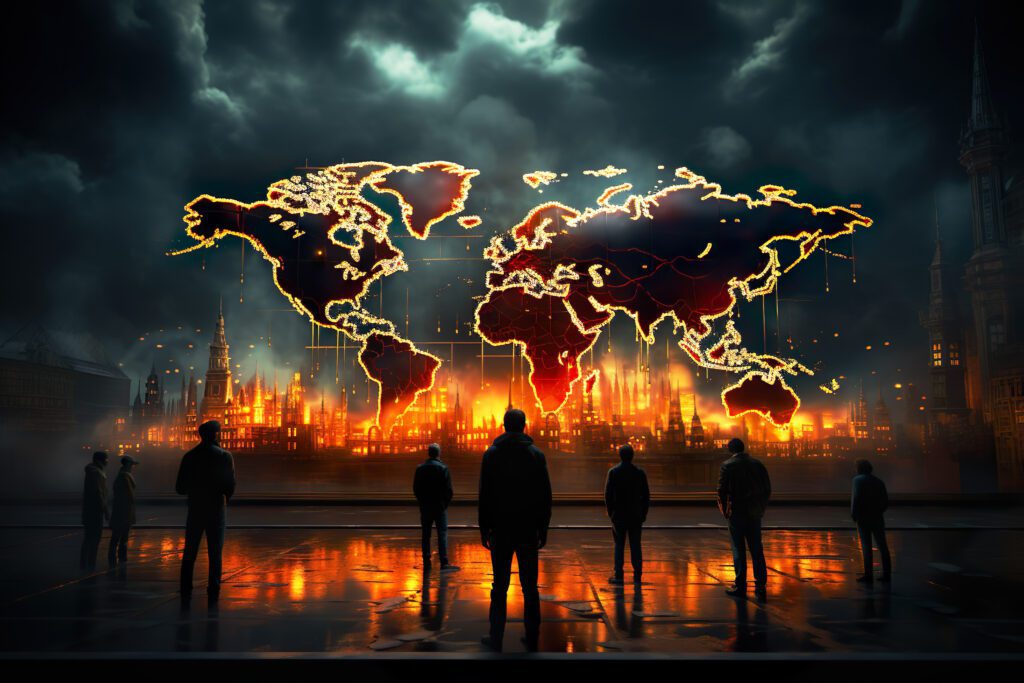צרו איתנו קשר!
גיאופוליטיקה ואסטרטגיה
Geopolitics and Strategy
About The Course
על הקורס
הקורס יתעמק ביחסי הגומלין המורכבים בין גיאוגרפיה, כוח ויחסים בינלאומיים, ויספק לסטודנטים הבנה מקיפה של דינמיקה גלובלית. באמצעות שילוב של מסגרות תיאורטיות וניתוח מקרים. נלמד על הכוחות המעצבים את הסדר העולמי ואת האסטרטגיות המופעלות על ידי מדינות ושחקנים לא-מדינתיים כדי לנווט אתגרים גיאופוליטיים.
הקורס יחשוף את הסטודנטים לשורשיה של המחשבה הגיאופוליטית, החל מראשיתה במאה ה-20 ועד להתפתחויותיה העכשוויות במאה ה-21, תוך שימת דגש על תפקידם המכריע של גורמים גיאוגרפיים, משאבים וטכנולוגיה בעיצוב התנהגות המדינות.
דינמיקת כוח גלובלית ואזורית, ננתח את חלוקת הכוח במערכת הבינלאומית, תוך התמקדות בתפקידם של גורמים מרכזיים כמו מדינות לאום, תאגידים רב לאומיים וארגונים בינלאומיים. נדון בדינמיקה המשתנה של כוח באזורים שונים ואת ההשלכות על היציבות העולמית. נעסוק גם באזורי מפתח כגון המזרח התיכון, אירופה, ואסיה.
סטודנטים יקבלו הזדמנות ליישם תיאוריות אסטרטגיות בניתוח מקרי בוחן של קונפליקטים, בריתות ואתגרי ביטחון היסטוריים ועכשוויים כמו משבר האי-קרים, המלחמה הקרה, משבר הגרעין הצפון-קוריאני, מלחמת האזרחים בסוריה והסכם הגרעין עם איראן, בחינה שתספק תובנות לגבי חשיבותה של חשיבה אסטרטגית בעיצוב תוצאות ומזעור סיכונים.
גיאופוליטיקה של אנרגיה ומשאבים, הקורס יבחן את המשמעות הגיאופוליטית של אנרגיה ומשאבי טבע, לרבות נפט, גז, מינרלים ומים וננסה להבין כיצד תחרות משאבים משפיעה על יחסים בינלאומיים, פיתוח כלכלי וקיימות סביבתית.
הממד הגיאופוליטי של אנרגיה ומשאבי טבע כגון נפט, גז, מינרלים ומים ינותח תוך בחינת השפעתם על יחסים בינלאומיים, פיתוח כלכלי וקיימות סביבתית. לבסוף, תרחישים עתידיים ואתגרים צפויים במאה ה-21 כמו אבטחת סייבר, בינה מלאכותית ומשבר האקלים ינותחו מבעד לפריזמה הגיאופוליטית ובמגמותיהם על הביטחון, הממשל והכלכלה העולמית.
* הקורס יותאם לרמת כל שכבת גיל.
This course will delve into the complex interplay between geography, power, and international relations, providing students with a comprehensive understanding of global dynamics. Through a combination of theoretical frameworks and case analysis, we will learn about the forces shaping the world order and the strategies employed by states and non-state actors to navigate geopolitical challenges.
The course will expose students to the roots of geopolitical thought, from its beginnings in the 20th century to its contemporary developments in the 21st century, emphasizing the crucial role of geographical factors, resources, and technology in shaping state behavior.
We will analyze the distribution of power in the international system, focusing on the role of key actors such as nation-states, multinational corporations, and international organizations. We will discuss the changing dynamics of power in different regions and their implications for global stability. Key areas such as the Middle East, Europe, and Asia will also be addressed.
Students will have the opportunity to apply strategic theories in analyzing case studies of historical and contemporary conflicts, alliances, and security challenges such as the Crimean crisis, the Cold War, the North Korean nuclear crisis, the Syrian civil war, and the nuclear deal with Iran. This examination will provide insights into the importance of strategic thinking in shaping outcomes and minimizing risks.
The course will examine the geopolitical significance of energy and natural resources, including oil, gas, minerals, and water, and we will try to understand how resource competition affects international relations, economic development, and environmental sustainability.
Finally, future scenarios and anticipated challenges in the 21st century such as cybersecurity, artificial intelligence, and the climate crisis will be analyzed through a geopolitical prism and their trends on security, governance, and the global economy.
* The course material will be tailored to the age of the learners.







